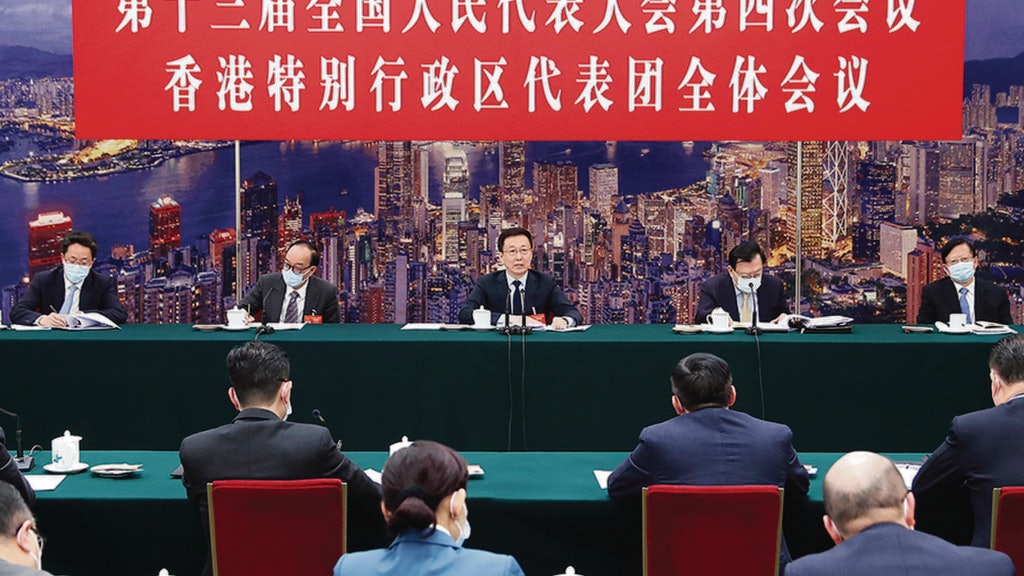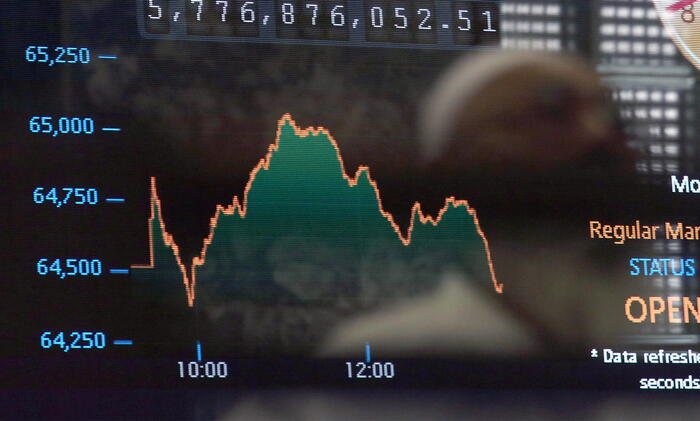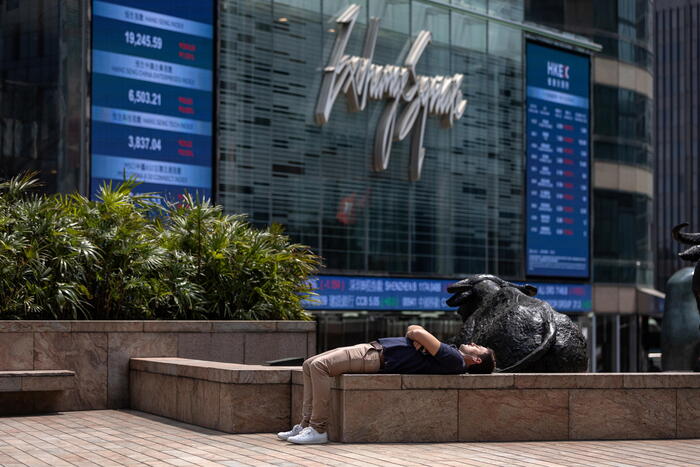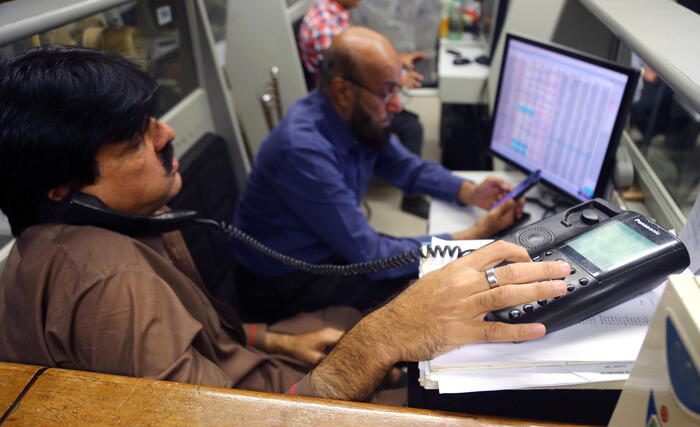editorial
Written by: Hong Kong 01
2021-03-08 06:00
Last update date: 2021-03-08 06:00
Last Friday (March 5), the Fourth Session of the Thirteenth National People’s Congress was opened in Beijing. Among the various agendas of this conference, the highlight was the review of the Fourteenth National Economic and Social Development of the People’s Republic of China. “Outline of the Five-Year Plan and 2035 Vision (Draft)” (referred to as “Outline”), but on the opening day, the focus of Hong Kong and even international public opinion fell on the “Decision of the National People’s Congress on Improving the Election System of the Hong Kong Special Administrative Region” ( Referred to as "Decision").
The "Outline" expounds the country's grand plan for economic and social development in the future, showing the central government's confidence in the country's governance and development prospects, while the "Decision" shows that the central government will drastically rectify Hong Kong's electoral system and the political operation that Hong Kong people are accustomed to. His distrust is on paper.
In fact, since the formulation of the "Hong Kong National Security Law" in response to the social unrest caused by the amendment of the "Fleeing Offenders Ordinance", the Central Government has no longer concealed its loss of political trust in Hong Kong.
Waves of "rectification" have continued to envelop Hong Kong society, with some people complaining about themselves, others complaining about others.
Anyone who has received the most basic education should understand that such a negative attitude will not help solve the problem.
The central government used tough measures to urge Hong Kong society to correctly understand the political ethics that Hong Kong should obey as a special administrative region of the People's Republic of China. Even though Hong Kong people are uncomfortable in every way, they cannot deny that everyone's vision of "one country, two systems" has gone off track.
The reality before us is that Hong Kong must take a pragmatic view of the role of the central authorities in Hong Kong and jointly reconstruct mutual political trust. It should also be seen that "rectification" is only the starting point for Hong Kong's social reform.
The news of the central government's move to revise Hong Kong's electoral system has gradually become clearer in recent months with discussions on "patriots ruling Hong Kong."
Last Friday, Wang Chen, vice chairman of the Standing Committee of the National People's Congress and member of the Political Bureau of the Central Committee, made an explanation on the draft decision on improving Hong Kong’s electoral system at the first plenary meeting of the conference.
The representative group meeting will follow up the specific deliberations of the draft this week. According to the established meeting schedule, the first draft should be reviewed in the morning of this Monday (March 8), and the revised draft will be reviewed in the afternoon of Tuesday (March 9). In the end, the "Decision" was formally voted on at the third plenary meeting of the Congress that closed on Thursday (March 11).
Wang Yang, chairman of the National Committee of the Chinese People's Political Consultative Conference, issued a report on the work of the Standing Committee of the Chinese People's Political Consultative Conference. He mentioned that the Chinese People's Political Consultative Conference needs to firmly support the full implementation of the principle of "patriots ruling Hong Kong" and strengthen the patriotism education of Hong Kong and Macao youths.
(Associated Press)
"Patriotic" includes mutual trust and recognition of compatriots
According to Wang Chen's explanation, the necessity of perfecting Hong Kong's electoral system lies in the fact that the social chaos in recent years has revealed the hidden dangers of the current mechanism.
In order to ensure that the "Hong Kong people govern Hong Kong" with patriots as the main body, the rule of law and effective governance in Hong Kong, and the practice of "One Country, Two Systems" move forward in the right direction, the Central Government needs to adopt this "Decision" to achieve "Patriot governance". Hong Kong”, the implementation of the central’s overall governance and the maintenance of constitutional order, the specific content of which is to authorize the Standing Committee of the National People’s Congress to amend the The law provides a basis for subsequent corresponding changes, and the main direction of the changes is to expand the size and functions of the election committee, and to establish a full-process qualification review mechanism for related elections.
Obviously, "patriotism" is the most important key word that runs through the "Decision" of the central government this time.
Wang Chen has mentioned "patriotism" more than ten times before and after. As for the overall requirements for improving Hong Kong's electoral system, it is also "to fully implement, embody and implement the principle of "patriots ruling Hong Kong" in terms of institutional mechanisms to ensure that the power of governance is firmly in place. In the hands of the patriotic and loving Hong Kong forces", the "Outline" published on the same occasion also pointed out that it is necessary to "enhance the national consciousness and patriotic spirit of Hong Kong and Macao compatriots."
Before ensuring that the majority of Hong Kong people meet the "patriotic" standard, it is naturally difficult for Beijing to trust this border city where there have been many anti-central demonstrations and take tough measures to stifle various risks and hidden dangers that may threaten its governance.
In contrast, some Hong Kong people always criticize Beijing’s erratic standards of "patriotism" and even force it to equate it with "love the party." But in fact, the "Implementation Guidelines for Patriotic Education in the New Era issued by the Central Committee of the Communist Party of China and the State Council at the end of last year" "It has been mentioned that one of the basic contents of "patriotic" education is "To achieve the reunification of the motherland and safeguard national unity is the unremitting pursuit of the Chinese nation. It is necessary to strengthen the education of the reunification of the motherland, and deeply reveal that safeguarding national sovereignty and territorial integrity and realizing the complete reunification of the motherland are the general trend. , Where the righteousness lies, the people’s aspirations, enhance the spiritual harmony, mutual trust and identification of the broad masses of compatriots, and launch a resolute struggle against the words and deeds of splitting the motherland.” This reflects Beijing’s belief that “patriotism” includes the “mutual trust and identification” between compatriots and “Hong Kong independence”. One type of separatist thought "cut the seat."
The release of the "Decision" this time symbolizes that the mutual trust between Hong Kong and the Central Government is at a new low. The social turmoil in the past few years has made Beijing feel that many Hong Kong people are untrustworthy. Therefore, the safety factor must be tightened to a fairly conservative level through a nearly retrogressive political system. Reform arrangements to restrain the "anti-China forces that disrupt Hong Kong."
However, the reason why things have developed to such a degree is that apart from the long-term misjudgment of local people’s sentiments by the Beijing and Hong Kong authorities, the pan-democrats in Hong Kong also need to bear great responsibility, because they have always refused to "contract and destroy prosperity and stability" The "speculation" and the "Hong Kong independence" that overthrew China's sovereignty have clearly cut off seats, and Beijing fears that they have also become "anti-China chaos in Hong Kong and local radical separatist forces."
Politicians in Hong Kong must learn a lesson in the future and show that they are "patriots" who obey the bottom line of national sovereignty and security, so as to re-establish political mutual trust with Beijing.
The release of the "Decision" this time symbolizes that the mutual trust between China and Hong Kong is at a new low. The social turmoil in the past few years has made Beijing feel that many Hong Kong people cannot trust it.
(Profile picture)
"Decision" originated from the deterioration of the interaction between the central and Hong Kong
On the other hand, the basic idea of the Central Government’s "Decision" to improve Hong Kong’s electoral system is to "form a new democratic electoral system that is in line with the actual conditions of Hong Kong and has Hong Kong characteristics." In fact, this election concept with "Hong Kong characteristics" This is not the first time.
As early as May 2015, Zhang Xiaoming, then director of the Hong Kong Central Liaison Office, published a signed article in local newspapers entitled "Promote universal suffrage with Hong Kong characteristics with system confidence", stating that "some political forces and figures in Hong Kong can also know where to avoid Gradual adjustment of political stance, seeking political mutual trust and positive interaction with the central government through practical actions, so as to seek greater space for its own development.” Unfortunately, this appeal did not receive a positive response from Hong Kong society and the opposition, which led to the relationship between the central government and Hong Kong. Becoming more and more stiff.
Recall that the last time the amendments were made to the method for the formation of the Chief Executive and the Legislative Council stipulated in Annexes 1 and 2 of the Hong Kong Basic Law was the "anchored" political reform proposed by then Chief Executive Tsang Yinquan in 2010.
That year, one month before the "Amendment" in the annex was voted by the Legislative Council, members of the Democratic Party, the Ultimate Universal Suffrage Alliance, and the Democratic People’s Livelihood Association had an "ice-breaking meeting with Li Gang, then deputy director of the Liaison Office of the Central Committee of the Communist Party of China and others." "At that time, Li Gang also directly stated that "the only way to solve the problem is to discuss rationally, communicate frankly, and build consensus within the framework of the Basic Law. Confrontation can only be counterproductive... We are willing to work with any rational, sincere, and responsible Hong Kong The political groups communicated and listened to their opinions." In the end, this benign interaction between the two sides successfully created the first and only political reform promoted by Hong Kong.
For the future Hong Kong society, how to restart the benign interaction with the central government as it did ten years ago will definitely be a big issue.
At the moment when the central government has stated that it will vigorously crack down on the "anti-China and chaotic Hong Kong forces," it will undoubtedly be extremely difficult to return the central-Hong Kong interaction to a benign track, but this does not mean that Hong Kong people can let go and do nothing.
Since radical resistance has proven to be infeasible, all sectors of Hong Kong must return to the path of communication and compromise, rejecting "everything China must oppose" or using various conspiracy theories to understand and interpret Beijing’s policies, and more importantly, think about how to restart the benign interaction with the central government. Don’t stick to irrational accusations such as "kneeling down" or "surrendering." This is also the biggest reason why "Hong Kong 01" has been advocating politicians to stand up and oppose radical and extreme populism in recent years.
The past is gone, and those who come can follow.
It is an undeniable fact that the mutual trust between China and Hong Kong has been destroyed in recent years. We can only hope optimistically and work hard to repair the political relationship with Beijing.
From the speech by Xia Baolong, vice chairman of the National Committee of the Chinese People’s Political Consultative Conference and director of the Hong Kong and Macao Affairs Office, at the National Hong Kong and Macao Research Association Symposium at the end of last month, the central government still determined that "the vast majority of Chinese citizens in Hong Kong society are patriotic, and those few who stand on the opposite side of the patriots "Anti-China chaos in Hong Kong", after the "Hong Kong Area National Security Law" came into effect, related crimes have been greatly reduced. It is estimated that this is enough to prove the truth.
Many Hong Kong people still sincerely support national sovereignty and recognize the importance of maintaining local prosperity, stability, and long-term stability. On this basis, it is imperative to plan for the reconstruction of political mutual trust and positive interaction with Beijing.
In the atmosphere of blindly agreeing with the establishment, some mainland scholars shouted: "The central government does not want loyal waste."
The picture shows on May 29 last year, Chief Executive Carrie Lam and Director of the Chief Executive's Office Chen Guoji went to the street and station to sign in support of the legislation of the National Security Law.
(Profile picture / Carrie Lam fb)
"Governance" and "Rectification" go hand in hand
Politicians in Hong Kong must reflect on this in particular.
Regarding the central government's move to change the Hong Kong electoral system, the establishments have applauded, but in the atmosphere of blindly agreeing, some mainland scholars yelled: "The central government does not want loyal waste."
This is a slanderous statement.
In the context of the Chinese Communist Party, "governance" and "rectification" are by no means opposed to each other, but go hand in hand. It can even be said that both "governance" and "rectification" are ultimately just to create conditions for continuous reform and promote Social development.
The simultaneous appearance of the "Outline" and "Decision" on the agenda of the National People's Congress is the best reminder of this.
On the surface, the purpose of revising the electoral system is to make Hong Kong's pan-democrats "set the chaos" and act as a "loyal opposition" that does not deviate from the political ethics. However, if you think that this meets the requirements of "prosperity, stability, and long-term stability," you can only do it. Said it was self-deception.
Last Saturday (March 6), when Han Zheng, member of the Standing Committee of the Political Bureau of the CPC Central Committee and the leader of the Hong Kong and Macao Work Leading Group, met with members of the CPPCC National Committee in Hong Kong, he reiterated the principle of "patriots ruling Hong Kong" and emphasized that Hong Kong must strive to improve its economy. People’s livelihood, and effectively resolve deep-seated contradictions.
These words are actually not "new," but they echo the central principles put forward in the "Outline" concerning the country's major policies. It is necessary to achieve new results in economic development and to bring people's livelihood and welfare to a new level.
In the final analysis, it is to require managers to continue to reform and improve efficiency.
This is probably the most fundamental requirement of the central government for "patriots ruling Hong Kong."
Patriots ruling Hong Kong|Stop "Cultural Revolution-style Criticism", so that society will not be trapped in political vortex again
Patriots Governing Hong Kong: In-Depth Interview|From the National Security Law to the Reform of the Electoral System, the Chinese Communist Party's Logic of Governing Hong Kong
Patriots Governing Hong Kong·In-depth Interview|Don't Do "All Colors" Who Is Xia Baolong Talking To
Patriots govern Hong Kong.
Interpretation | Hong Kong lacks a governor with a "big nation" in mind?
Please pay attention to the 255th "Hong Kong 01" Weekly News published on March 8, 2021, which is available at major newsstands, OK convenience stores and Vango convenience stores.
You can also
click here to
sample the weekly e-newsletter and read more in-depth reports.
Patriots ruling Hong Kong, one country, two systems Xia Baolong 01 Weekly Editorial 01 Views 01 Weekly Formation Chief Executive Election Two Sessions




/cloudfront-eu-central-1.images.arcpublishing.com/prisa/3I74UEXLYRBBRPGPSGWNN6WXH4.jpg)




